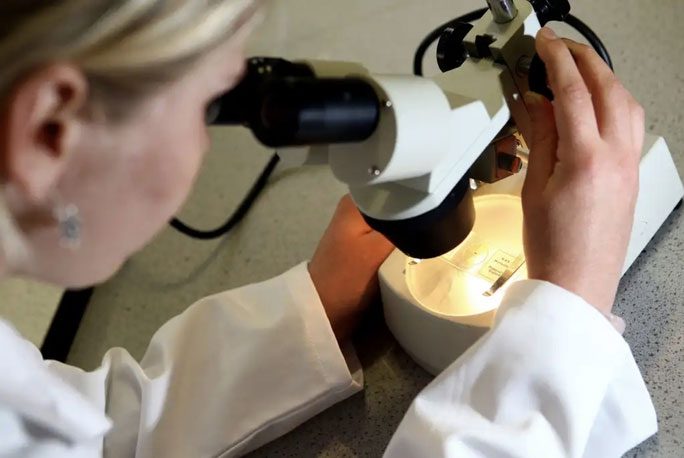Scientists have announced that the discovery of extrachromosomal DNA, which acts as a cancer-causing gene, is considered a breakthrough that could lead to new cancer treatment therapies.
The Guardian reported on February 18 that researchers have found these DNA segments have been shown to help tumors resist various anti-cancer drugs. The discovery of this genetic material, known as extrachromosomal DNA or ecDNA, could revolutionize the treatment of some of the most malignant tumors affecting humans today.

Scientists discover extrachromosomal DNA acting as a cancer-causing gene. (Photo: PA).
Professor Paul Mischel from Stanford University in California, one of the leaders of the aforementioned research program, stated: “This discovery is a game changer. We believe that these DNA segments are behind a large number of more severe and aggressive cancers affecting humans today. If we can block their activity, we can prevent the spread of these cancers.”
Meanwhile, geneticist Howard Chang from Stanford University commented: “We discovered that ecDNA, which acts as a cancer-causing gene, somehow separates itself from a person’s chromosomes and operates in a way that breaks conventional genetic rules.”
The research program is part of the initiative “Major Challenges in Cancer,” funded by the Cancer Research UK and the National Cancer Institute in the United States.
Scientists believe they can find ways to eliminate ecDNA from patients’ bodies through medication or other forms of therapy.



















































